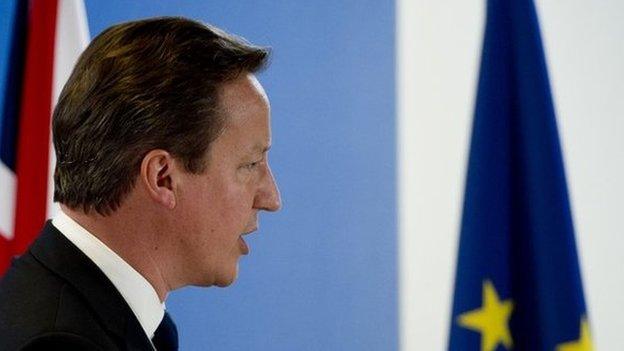'Brexit?' Everything now at stake for Cameron
- Published
- comments
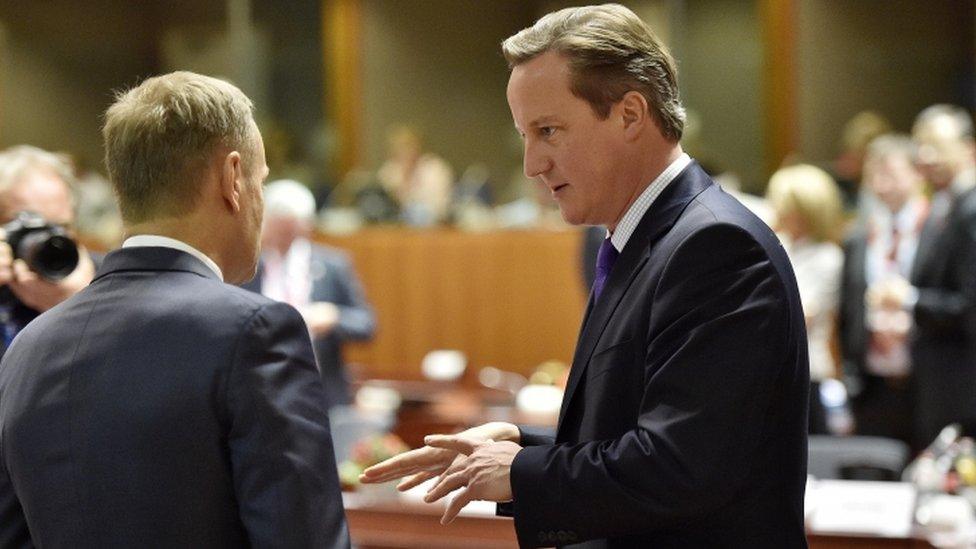
David Cameron will spell out his stance in a letter to Donald Tusk
The shadow boxing is over.
On Tuesday, David Cameron will send a letter to Donald Tusk, the President of the European Council.
It will set out the government's ambitions for renegotiating its relationship with the EU.
The letter will not reveal the minute detail of the government's case.
Rather, it will establish the broad themes framed in four or five policy baskets.
The government wants to avoid declaring a wish list by which it can be judged.
What it wants is to present the British people with a package deal after it has been agreed.
But there will be no avoiding instant judgement calls.
The Eurosceptics will question whether the government's demands amount to the "negotiation for fundamental change" that David Cameron promised, external.
The heckling of Mr Cameron at the CBI conference, external is just a foretaste of what is almost certain to be a tough, bruising referendum campaign.
The prime minister conceded a vote to keep his party together. Now, that unity will be tested.
The polls suggest a narrow majority for remaining in the EU, but they are close enough to indicate a real contest.
Detailed negotiations begin
So what is the timetable?
Next week, the detailed negotiations will begin in Brussels. On the UK side, the team will be led by the British ambassador to the EU, Ivan Rogers.
At the same time, the prime minister will embark on a diplomatic offensive to persuade 27 heads of government of the merits of the British case.
The aim is to conclude negotiations in time for the European Council meeting on 17 December, when Europe's leaders will deliver their verdict.
In the event of a smooth summit, the government would like to hold the referendum in either June next year or in the autumn.
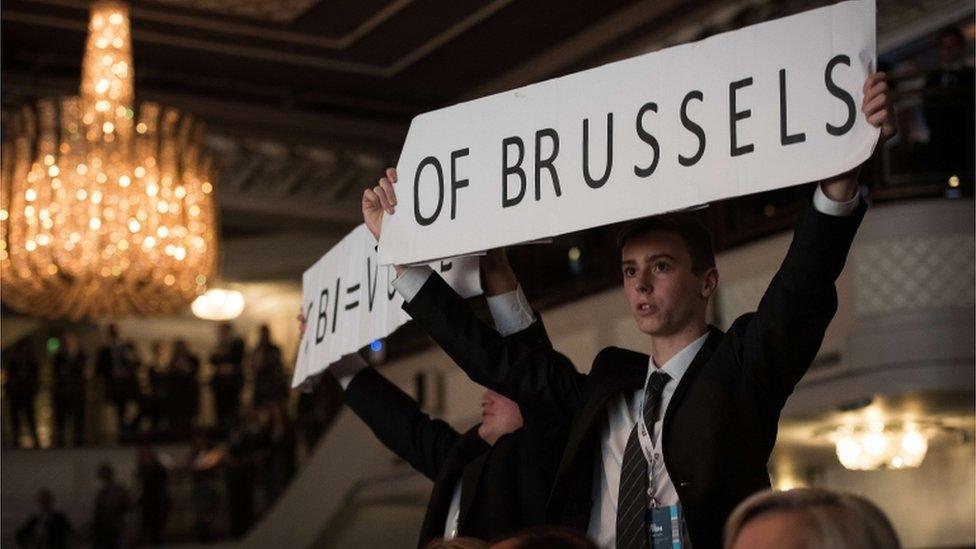
Mr Cameron was given a rough ride by protesters at the CBI conference
A government minister told me the plan was to move as fast as possible - partly to limit the impact of uncertainty on the economy.
Few things in Brussels, however, are that straightforward. There is already speculation about British tactics.
Some expect David Cameron to stage a fight to convince sceptics in his party he has wrung concessions from the EU leaders, and that, of course, could delay a deal until the spring.
So what are the key demands?
sovereignty - an optout from "ever closer union" and more power for national parliaments
safeguarding the interests of those countries outside the eurozone and, in particular, protecting the City
migration - preventing the welfare system from being a magnet to EU migrants
less regulation - extending the single market and new trade deals
Some of these demands can be more easily delivered than others.
The EU Commission is already committed to less regulation.
As regards "ever closer union", last June the European Council described the words as "allowing for different paths of integration for different countries".
There is already a "yellow card" mechanism for national parliaments putting a brake on EU legislation, and that could be toughened up.
Two-speed Europe
Restricting benefits to EU migrants is a much tougher demand.
It risks undermining the principle of free movement.
It might, however, just be possible to introduce a residency test that would apply to British nationals and non-nationals alike.
The government does have an overall vision of what it wants from its relationship with the EU.
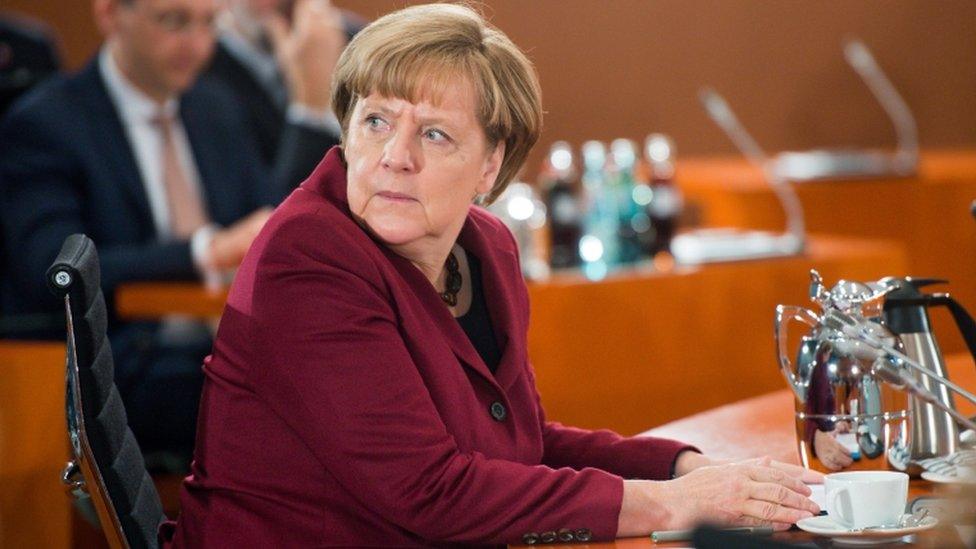
Chancellor Angela Merkel has expressed sympathy with the UK position
It wants a two-speed Europe, a Europe that accepts there are multiple currencies with different layers of integration.
There is a grand bargain on offer. The UK will not stand in the way of those who want to integrate further - but, in return, it wants its rights and interests protected.
What the UK is looking for are binding principles embedded in EU law, which, at a later date, would be written into the EU treaties.

What will the referendum question be?
The question is always crucial in any referendum. The 2013 suggestion from the Conservatives, external was: "Do you think that the United Kingdom should remain a member of the European Union. Yes or no".
Some people thought this phrasing leaned too far towards the status quo - the current state of affairs - and the Electoral Commission, which has to approve the question, said it was not clear enough, and proposed: "Should the United Kingdom remain a member of the European Union or leave the European Union?"
The final decision will be made by MPs, but Downing Street has accepted the amended wording.

Does the UK have allies?
The Germans are broadly sympathetic.
Only last week, Chancellor Angela Merkel said, external: "The Europe of today is no longer a one-speed Europe."
France is against anything that smacks of an a-la-carte Europe.
Denmark, Sweden and the Netherlands are allies.
The Central and Eastern European countries care deeply about freedom of movement. Belgium and Spain don't want a retreat from "ever closer union".
Campaign themes
So what will be the main themes of the campaign?
The "out" campaign will offer to take back control "of our economy, our border and our democracy".
The "in" campaign will warn of endangering the economy, of investors staying away, of risks to sterling and the equity markets..
So what would a Brexit look like?
Unwinding the relationship with the EU would take time.
A transitional relationship would have to be negotiated, securing access to the single market.
Already, some US investment banks are warning there would be a run on the pound and less growth.
Businesses would need to know what regulations they would be working with.
What model would UK follow?
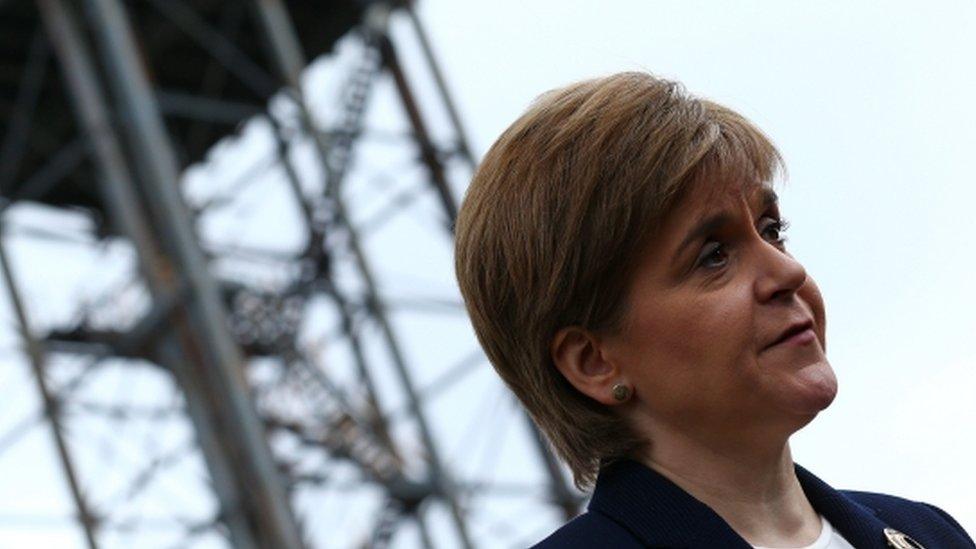
Scottish First Minister Nicola Sturgeon will be watching closely for any political advantage
We don't know, but outside the EU there are four models: Norway, Switzerland, operating under World Trade Organisation rules, and a free trade agreement.
David Cameron says, external: "Norway has no say in setting EU rules: it just has to implement its directives."
Switzerland took years to negotiate its trade deals with the EU. Operating under other rules would see tariffs.
But those who want to leave the EU counter by saying the rest of the world would want to do business with the fifth largest economy on the planet.
All of this will be argued over.
A referendum is always unpredictable. It may turn on the popularity or unpopularity of the government.
It may be held just at the moment the migrant crisis is deepening.
It may well be that the voters don't focus on the terms of the renegotiation but follow their gut instincts as to what they feel about Europe.
Everything is at stake for David Cameron.
It is presumed that he wants to stay in a reformed EU.
If the vote went against him, it could spur another vote for Scottish independence, split his party and define his legacy.
- Published30 December 2020

- Published17 February 2016
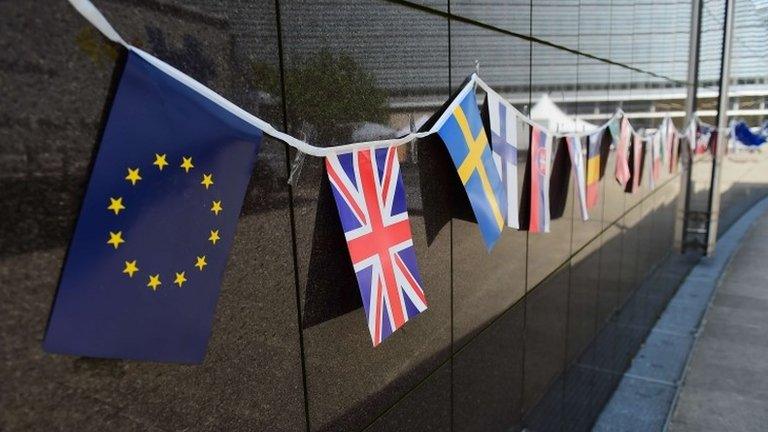
- Published26 May 2016
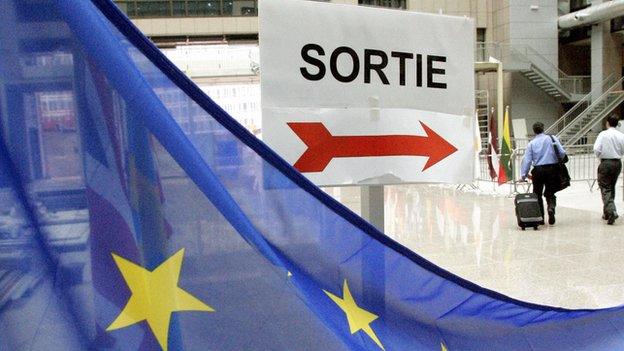
- Published15 October 2015
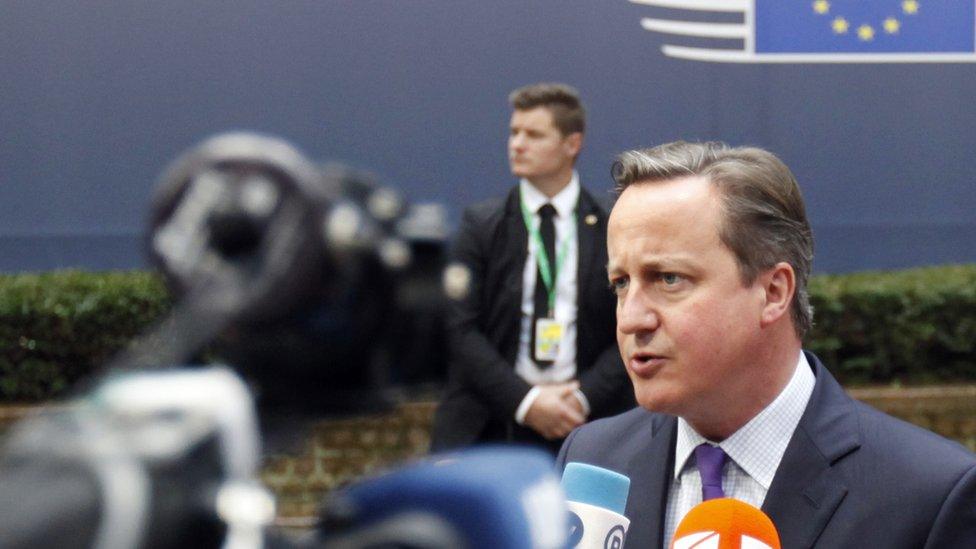
- Published8 May 2015
